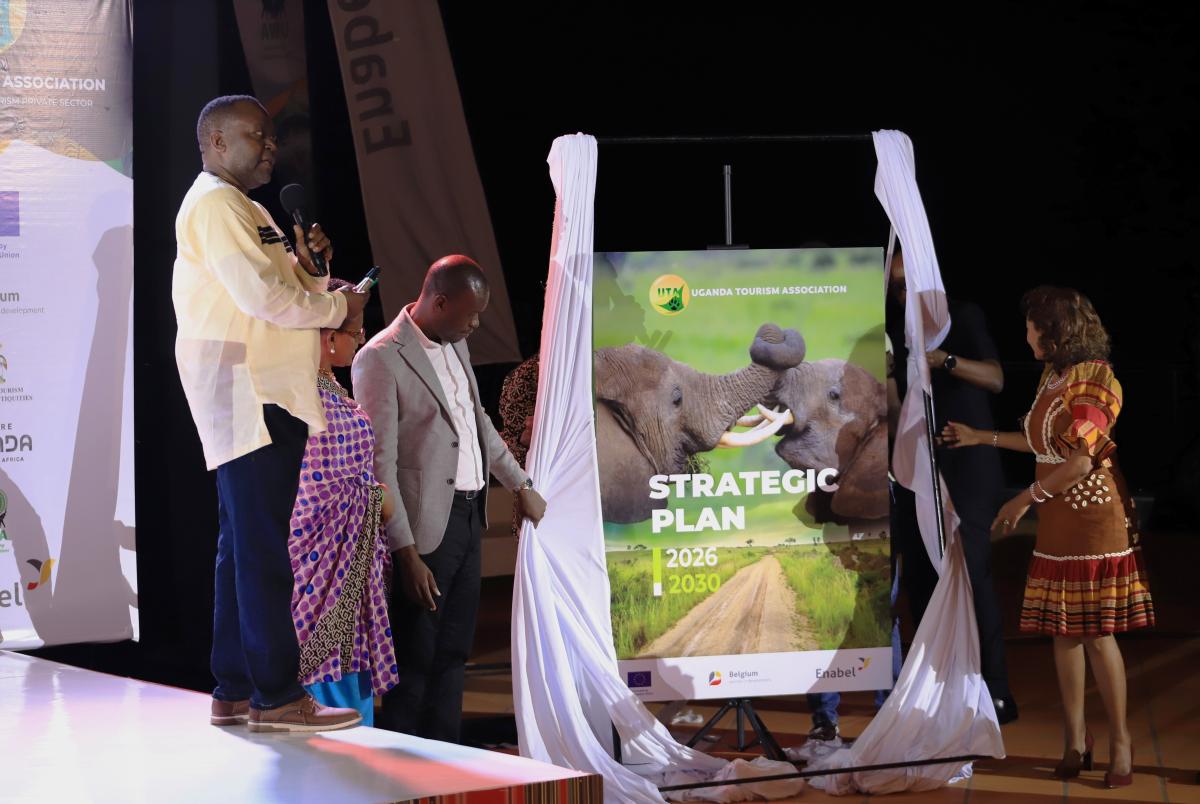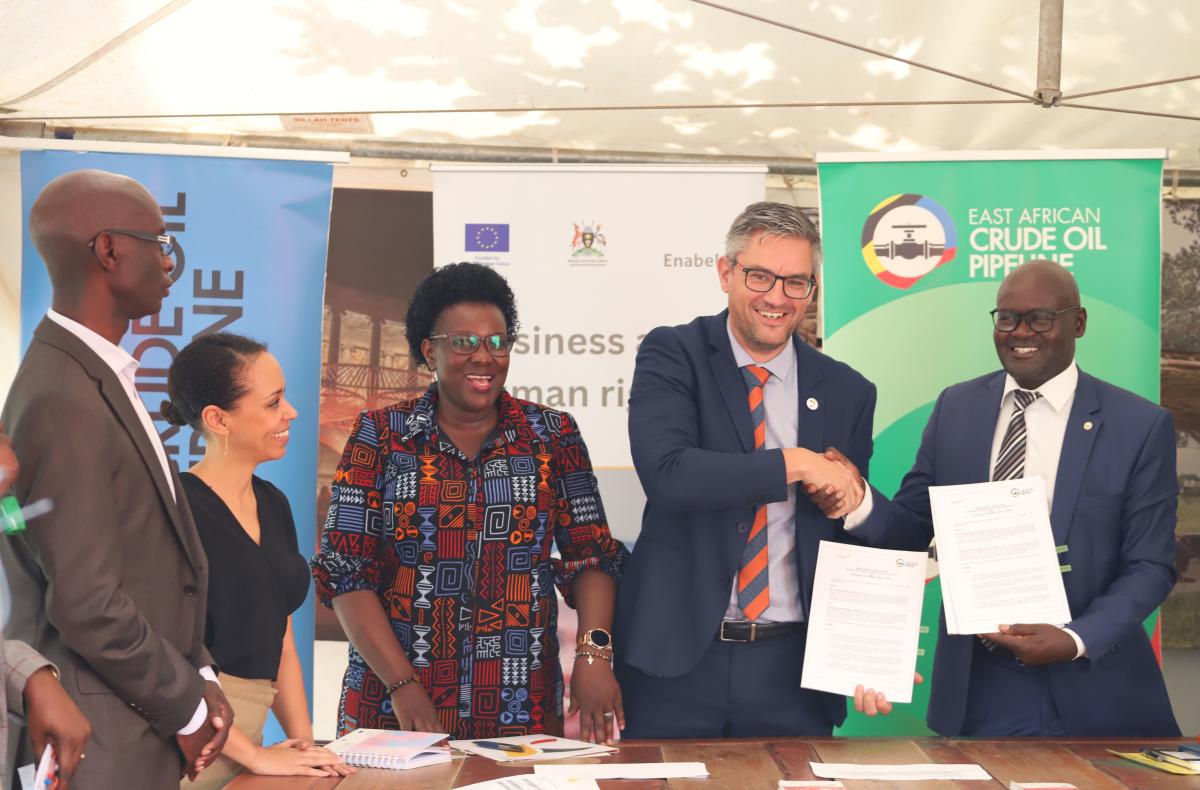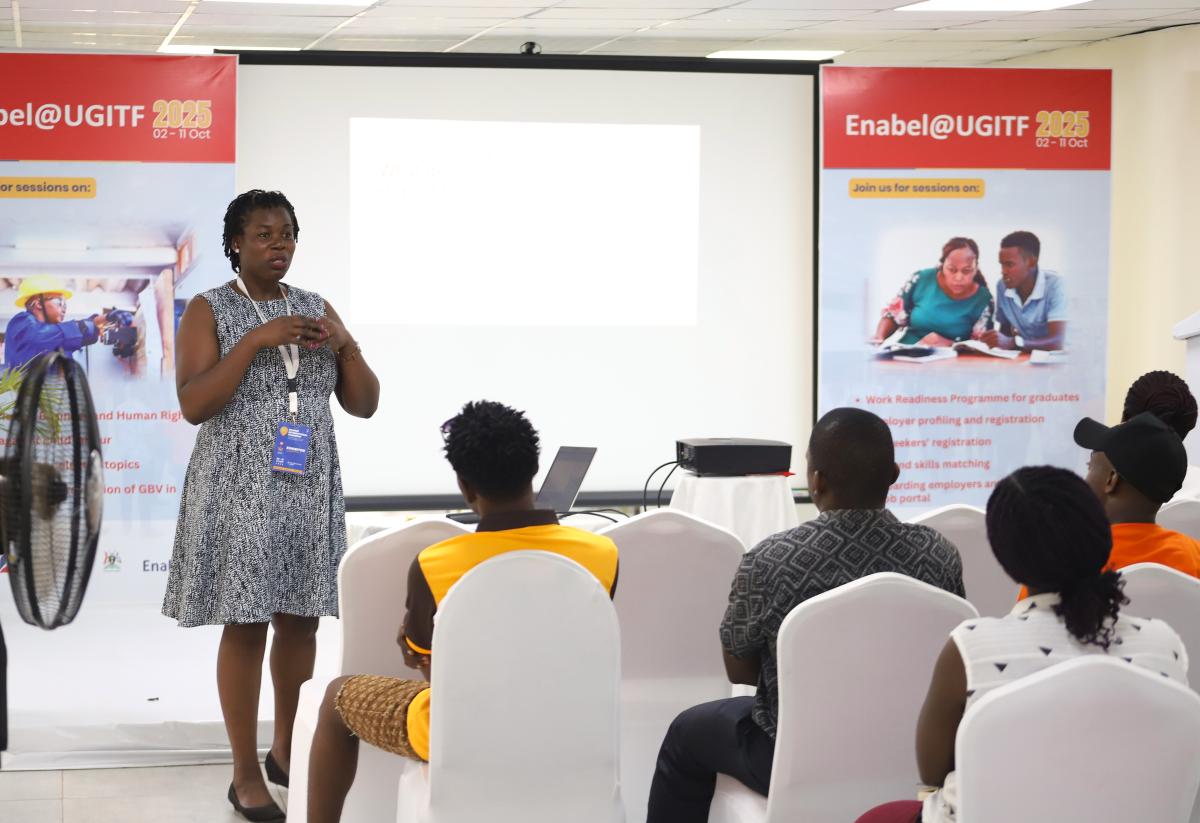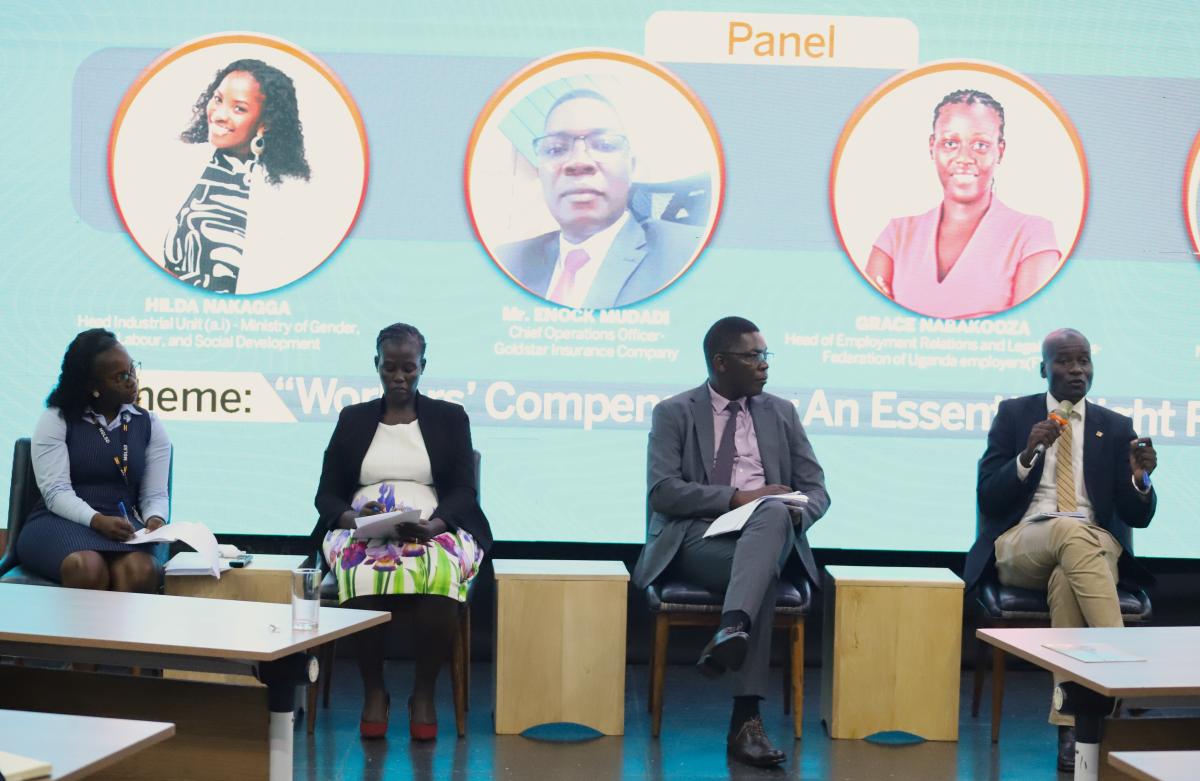Opzoeken
1 - 15 van 454 nieuws bekijken
-
Uganda Tourism Association charts tourism future with Strategic Plan, developed in collaboration with Enabel
Jovia KAVULU | 13/02/2026
The Uganda Tourism Association (UTA) has officially launched its Strategic Plan 2026–2030, a landmark step toward strengthening Uganda’s tourism private sector and positioning it for sustainable, inclusive growth. Developed in close collaboration with Enabel, the Strategic Plan sets out a bold roadmap for the next five years. It prioritises institutional strengthening, sustainable financing, improved service delivery, enhanced communication, and the promotion of professionalism, standards, and responsible tourism practices. For Enabel, this launch is the natural progression of years of investment in Uganda’s tourism sector. From strengthening associations and governance systems to promoting training for youth and women, Enabel has consistently worked to build a resilient industry that balances competitiveness with sustainability and inclusion. Enabel has championed Fair Trade Tourism certification, inclusive business models, and occupational safety campaigns in hospitality workplaces. These efforts have contributed to positioning Uganda as a regional leader in responsible tourism. “Tourism today is not only about numbers, but about quality experiences, sustainability, and strong collaboration,” said Nicolas Oebel, Enabel Country Director. “This Strategic Plan reflects that shift, ensuring that Uganda’s tourism growth translates into competitiveness, decent jobs, and tangible benefits for communities.” UTA President Yewagnesh (Yogi) Biriggwa noted that the Strategic Plan provides a clear framework for the private sector to speak with one voice: “This Plan strengthens our ability to represent the industry, coordinate effectively, and ensure that tourism growth benefits not only enterprises but also communities across Uganda.” The Plan also reinforces UTA’s role as the apex body representing Uganda’s tourism private sector. Over the next five years, UTA will strengthen its institutional capacity and expand its membership base, bringing more community-based enterprises under one unified voice to improve coordination and advocacy across the industry. The launch comes at a pivotal moment, following the unveiling of the Uganda Tourism Policy and coinciding with renewed European Union investments worth €20 million, including projects implemented with Enabel and UNESCO to market and brand Uganda globally. In addition, Enabel recently signed a new project with the European Union that will further position Uganda as an attractive tourist destination while empowering communities in and around tourism sites. This initiative will ensure that local people benefit directly from tourism growth through skills development, enterprise opportunities, and inclusive business models. H.E. Jan Sadek, European Union Ambassador to Uganda, welcomed the launch, noting: “Our objective is to support tourism growth that is inclusive and sustainable — marketing and branding Uganda as an attractive destination while ensuring that communities around tourism sites benefit.” The government reaffirmed their commitment to working closely with the private sector, citing ongoing infrastructure investments in destinations such as Bwindi and Kidepo as critical enablers for competitiveness. Enabel continues to strengthen institutions, enhance competitiveness, and promotes green and decent jobs for youth. The UTA Strategic Plan 2026–2030 aligns seamlessly with this vision, offering a structured pathway toward a more professional, resilient, and coordinated tourism ecosystem. As implementation begins, the shared ambition is clear: to build a tourism industry that delivers quality experiences, drives sustainable economic growth, and creates meaningful opportunities for Ugandans across regions.
-
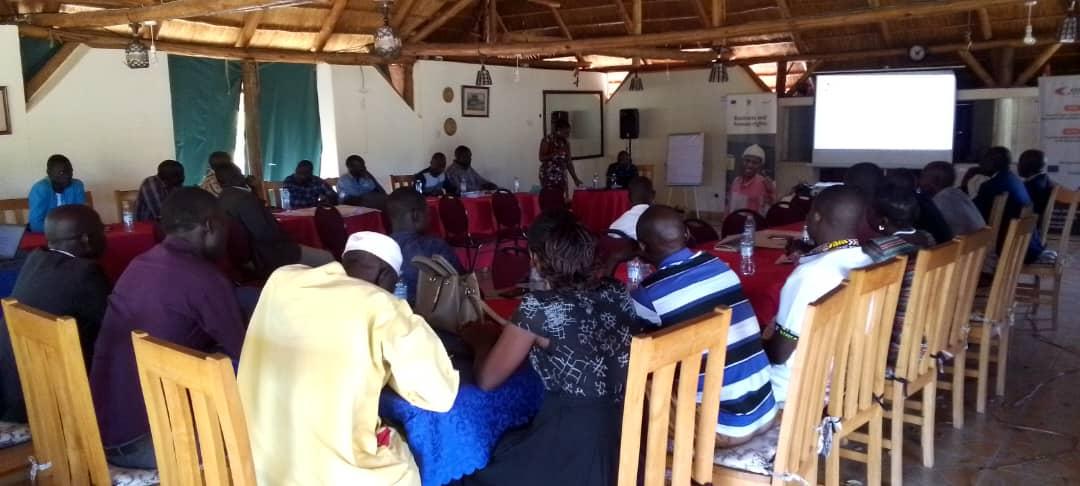
Strengthening local capacity and human rights governance in Uganda’s mining sector
John CANDIGA | 12/12/2025
The Orom-Cross Graphite Project, in Kitgum District, is emerging as one of Uganda’s most strategic mineral developments. Developed by Blencowe Resources, the project is expected to commence full operations in 2026 and will run for an estimated 14 years.The phased production plan of the project positions the mine as a significant contributor to both local and national economic growth. Under Phase 1, the project will produce 5,000 metric tons of graphite concentrate annually. Output is projected to increase significantly to 100,000 tons by Phase 3, supported by the introduction of a refinery in Phase 2 that will process up to 20 percent of the mined graphite into high-purity, battery-grade products for global markets. The developments signal Uganda’s growing role in the critical minerals value chain, particularly in industries that support the global energy transition.Financially, the project is anticipated to generate between 1–2 million US Dollars in annual royalties and an additional 2 million US Dollars in surface rights payments. Employment is also expected to rise, with 50 to 200 jobs projected in the early stages of operation.While these revenues and employment prospects offer transformative potential for Orom East Sub-County and Kitgum District, realising inclusive benefits will require deliberate planning, strengthened institutional capacity, and community empowerment. Without these enablers, local communities risk missing out on the socio-economic opportunities associated with industrial-scale mining.Enabel, through the Advancing Respect for Human Rights by Businesses in Uganda project, will participate in enhancing efforts to build robust governance, financial, and technical capacities within local institutions and communities.This intervention aligns with Uganda’s Agriculture–Tourism–Mining (ATM) policy, which promotes responsible resource management and equitable development within extractive-industry host communities.To reinforce local ownership and legitimacy from the onset, Enabel is working closely with the Ministry of Local Government and Kitgum District Local Government. A kick-off meeting held in Kitgum district brought together diverse stakeholders to promote evidence-driven planning and inclusive engagement.The one-day event convened 54 participants, including political and technical leaders from Kitgum district and Orom East Sub-County, representatives from the Ministry of Local Government and the Ministry of Energy and Mineral Development, cultural leaders, the host community land association, Consolidated African Resources Limited, the implementing company for the Orom-Cross Graphite Project, civil society organisations, the media, and Enabel’s implementing partner, Africa Centre for Energy and Mineral Policy (ACEMP).The Orom-Cross Graphite Project presents an opportunity for Kitgum District and for Uganda’s broader ambitions in the mining sector. Its long-term success, however, depends on ensuring that mineral development respects human rights, promotes transparency, strengthens community participation, and protects the environment.These priorities are consistent with Uganda’s National Action Plan for Business and Human Rights, which emphasises due diligence, community empowerment, accountable governance, and equitable benefit-sharing in extractive industries to drive economic growth and inclusive development.
-
Promoting responsible operations in Uganda’s Energy Sector
John CANDIGA | 12/12/2025
Enabel in Uganda and the East African Crude Oil Pipeline (EACOP) Limited have signed a Memorandum of Understanding (MoU) to strengthen cooperation in promoting Business and Human Rights principles within Uganda’s energy sector.The agreement reaffirms the shared commitment of both institutions to ensuring that energy and infrastructure development is undertaken in a manner that prioritises human rights, social inclusion, and sustainable development.The partnership will support responsible business conduct, enhance capacity building on human rights due diligence, and promote alignment of private sector operations with Uganda’s 2021 National Action Plan on Business and Human Rights (NAP-BHR).Speaking at the signing ceremony, EACOP’s Deputy Managing Director, John Bosco Habumugisha, underscored the vital role of corporate leadership in advancing responsible development.“EACOP is committed to delivering the pipeline project responsibly, ensuring that growth, inclusivity, and human rights go hand in hand. This partnership with Enabel marks a significant milestone in ensuring that business expansion and respect for human rights move together,” he said.The Country Director, Enabel in Uganda, Nicolas Oebel, highlighted that the collaboration is anchored within the European Union-funded Advancing Respect for Human Rights by Businesses in Uganda (ARBHR) Project, co-implemented by Enabel and the Ministry of Gender, Labour and Social Development.“Enabel is proud to collaborate with EACOP, a leading private sector actor, to translate the National Action Plan on Business and Human Rights into concrete actions that safeguard rights and foster sustainable investment,” he noted.Representing the Ministry of Gender, Labour and Social Development, Lydia Nabiryo, Principal Social Development Officer/Human Rights, said the MoU is a key step in strengthening human rights standards in Uganda’s oil and gas sector.“The collaboration will extend Business and Human Rights capacity-building efforts to Small and Medium Enterprises (SMEs) within EACOP’s supply chain, supporting responsible sourcing and contributing to national content development,” she said.The Advancing Respect for Human Rights by Businesses in Uganda Project facilitates implementation of the 2021 National Action Plan and works to reduce human rights abuses associated with business operations in Uganda. It focuses on five priority sectors: sugarcane, floriculture, mining, oil and gas, and fisheries.The East African Crude Oil Pipeline is a 1,443km export infrastructure system designed to transport Uganda’s crude oil from Kabaale in Hoima District to the Chongoleani Peninsula near Tanga in Tanzania for export to the international market.The project comprises 296km of pipeline in Uganda and 1,147km in Tanzania, along with six pumping stations, two pressure-reduction stations, and a marine export terminal in Tanzania.
-
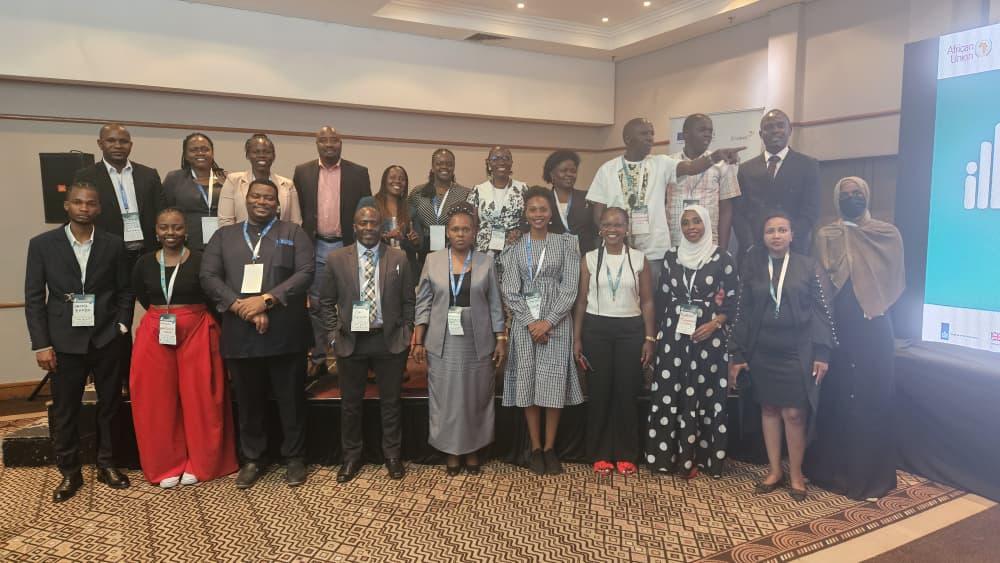
Aligning Uganda’s National Action for Business and Human Rights with regional and continental standards
John CANDIGA | 12/12/2025
Africa’s regulatory landscape is rapidly evolving. Regional and national frameworks continue to expand with guidance from instruments such as the UN Guiding Principles on Business and Human Rights (UNGPs), the African Union (AU) Agenda 2063, the AU Draft Policy Framework on Business and Human Rights, and the African Commission on Human and Peoples' Rights (ACHPR) resolutions.Businesses are being increasingly called upon to adopt responsible, rights-respecting, and sustainable practices, reflecting a growing commitment to stronger governance, greater transparency, and alignment with international human rights and environmental standards.The 04th Africa Business and Human Rights Forum, held from 07th – 09th October 2025 in Lusaka, Zambia, advanced this momentum by shifting the continental conversation from intention to implementation. Under the theme: “From commitment to action: Advancing remedy, reparations and responsible business conduct in Africa,” the forum emphasised turning policy commitments into concrete measures, particularly around access to remedy, reparations, and corporate accountability.The event brought together over 600 participants from more than 75 countries, including 39 African states. Government representatives, National Human Rights Institutions (NHRIs), civil society organisations, private sector actors, labour groups, rights holders, and international organisations.Delivered as a hybrid event, the forum broadened participation and offered a vital platform for accelerating implementation, sharing regional experiences, and identifying practical pathways to embed human rights in Africa’s business ecosystems.Speaking on behalf of His Excellency Ambassador, Bankole Adeoye, the African Union’s Commissioner for Political Affairs, Peace and Security, Mr. Issaka Garba Abdou, reaffirmed the African Union Commission’s commitment to working with Member States, NHRIs, civil society, the private sector, and development partners to: Strengthen legislative and policy frameworks to guarantee access to remedy and reparations Institutionalise human rights due diligence within national and regional business environments Embed responsible business conduct within the African Continental Free Trade Area (AfCFTA) trade and investment frameworks Enhance State and non-State grievance mechanisms, including NHRIs and corporate operational-level systems During the Forum, Enabel Business and Human Rights Expert, Lucy Peace Nantume, moderated a session on the role of multi-stakeholder engagement in developing and implementing National Action Plans on Business and Human Rights (NAPs). The session spotlighted experiences from Uganda, Kenya, and Tanzania, demonstrating collective progress and the value of cross-country learning. As Uganda advances the implementation of its National Action Plan on Business and Human Rights and continues efforts under the Advancing Respect for Human Rights by Businesses in Uganda project, the lessons from the 04th African Union Business and Human Rights Forum reinforce national priorities.Strengthening access to remedy, institutionalising human rights due diligence, and promoting responsible business conduct are not only continental aspirations, but also central to Uganda’s commitment to building an inclusive, fair, and sustainable economy where businesses respect and uphold human rights.
-
Showcasing innovation, skills, and responsible business in Uganda
John CANDIGA | 12/12/2025
The 31st Uganda International Trade Fair, hosted by Uganda Manufacturers Association (UMA) marked an important milestone for Uganda’s manufacturing and industrial sectors. Held at the UMA Showgrounds in Kampala, the event ran under the theme “Sustainable industrialisation for inclusive growth, employment, and wealth creation.”The international trade was officially opened by the Minister of Finance, Hon. Matia Kasaija, who made a strong national call to nurture start-ups and support homegrown innovations. Kasaija’s remarks aligned with UMA’s renewed strategy: moving beyond traditional factory displays to position the trade fair as a dynamic platform for SMEs, entrepreneurs, and skilling institutions.In line with the Buy Uganda, Build Uganda (BUBU) policy, UMA also unveiled a Made-in-Uganda supermarket to showcase exclusively local products. The initiative aims to counter negative perceptions about Ugandan-made goods and strengthen direct engagement between producers and consumers. The initiative allowed innovators to receive instant feedback, raise consumer confidence, and build stronger commercial networks.The UMA international trade fair also provided a platform for Enabel and partners to engage youth, employers, and businesses through three core thematic areas: the Work Readiness Programme, Business and Human Rights, and Decent Work and Social Protection.Through the WeWork-green and decent jobs for youth project and the Decent Work and Social Protection Project, implemented in partnership with the Private Sector Foundation Uganda (PSFU) and the Federation of Uganda Employers (FUE), Enabel is facilitating the transition of 1,800 young graduates into the labour market.Key activities showcased at the fair included: soft skills and work readiness training, employer registration and profiling, jobseeker registration, and skills matching.Under the Business and Human Rights thematic area, Enabel promoted responsible and ethical business conduct through daily awareness sessions with business owners and managers. Sessions included Key steps for companies to respect human rights, addressing emerging human rights concerns in Uganda, and the role of the private sector in eliminating child labour.Enabel also used the platform to raise awareness on decent work best practices. This was under the decent work and social protection thematic area aimed at preventing and responding to gender-based violence (GBV) in workplaces, and strengthening employer systems for fair, safe, and inclusive employment.Enabel and partners in honey, cocoa, coffee, and vanilla engaged in business-to-business (B2B) meetings with local and international buyers to form new partnerships. The engagements were crucial for promoting access to new markets, understanding certification requirements, and exploring fair-trade opportunities.The 2025 Uganda International Trade Fair demonstrated how industry, government, and development partners work together. Enabel’s engagement through the Work Readiness Programme, Business and Human Rights, and the Decent Work and Social Protection projects ensures that Uganda’s industrial growth is matched with inclusive employment, ethical business conduct, and stronger labour protections.By equipping young graduates with skills, guiding employers to respect human rights, and promoting safer workplaces across sectors, the fair was a catalyst for decent jobs, responsible business practices, and sustainable economic transformation.
-
Stakeholders call for standardised Workers’ Compensation in Uganda
John CANDIGA | 12/12/2025
Uganda’s Ministry of Gender, Labour and Social Development, in partnership with Enabel in Uganda, convened the country’s first-ever Hybrid Workers’ Compensation Conference, an important step toward strengthening social protection and workplace safety.The event brought together government officials, private sector leaders, and civil society actors to discuss how to build a more efficient, fair, and accessible workers’ compensation framework for all Ugandan workers. Speaking at the conference held at Fairway Hotel, Mr. Alex Asiimwe, Commissioner for Labour, Industrial Relations and Productivity, noted that workplace accidents were once viewed as unavoidable.“Today, we understand that such incidents are preventable through improved working conditions, effective compensation mechanisms, and adequate insurance coverage. As a Ministry, we greatly appreciate such dialogues,” he said. Reinforcing this message, Mr. Onzoma Apollo, Assistant Commissioner for Industrial Relations, reminded employers of their legal duty to cover all costs related to treatment, upkeep, and disability resulting from workplace injuries.He urged workers to report incidents promptly, explaining that timely reporting ensures proper medical attention and enables the Ministry to monitor safety trends and enforce workplace standards. Delivering the keynote address, Mr. Simon Kintu Zirintusa, Registrar of the High Court Civil Division, called for more robust collaboration between the Judiciary and the Ministry to simplify Uganda’s compensation claims process. He highlighted that many workers remain unaware of their rights and are left vulnerable when accidents occur.“Many workers don’t know they are actually entitled to compensation,” he said, stressing the need for more public awareness and a more user-friendly claims system. Zirintusa also underscored the legal obligations placed on employers. Section 13 of the Occupational Safety and Health Act mandates employers to protect workers from preventable harm, while the Workers’ Compensation Act requires both government and private sector employers to compensate workers who suffer injury, illness, or death in the course of employment.Under Section 18, employers are further required to insure themselves against liabilities arising from workplace accidents.To strengthen the system, the keynote speaker proposed several reforms, including: Standardised, easy-to-use claim forms accessible at magistrates’ courts Specific court rules to streamline compensation case handling Training of magistrates through the Judicial Training Institute Increased use of mediation to resolve disputes efficiently and amicably Enhanced cooperation between the Judiciary and the Ministry of Gender, Labour and Social DevelopmentThese recommendations, he said, would help ensure that workers receive fair compensation without facing unnecessary delays or legal complexities. The conference marked a significant step in Uganda’s ongoing efforts to create safer, fairer, and more resilient workplaces.Through the Decent Work and Social Protection Project, Enabel and the Ministry of Gender, Labour, and Social Development continue to champion reforms that strengthen workplace rights, improve access to justice, and enhance employer accountability.Standardising the workers’ compensation process is not just a legal necessity; it is a vital part of building a labour market where every worker is valued, protected, and empowered. By improving the compensation framework, Uganda moves closer to realising the vision of decent work for all.
-
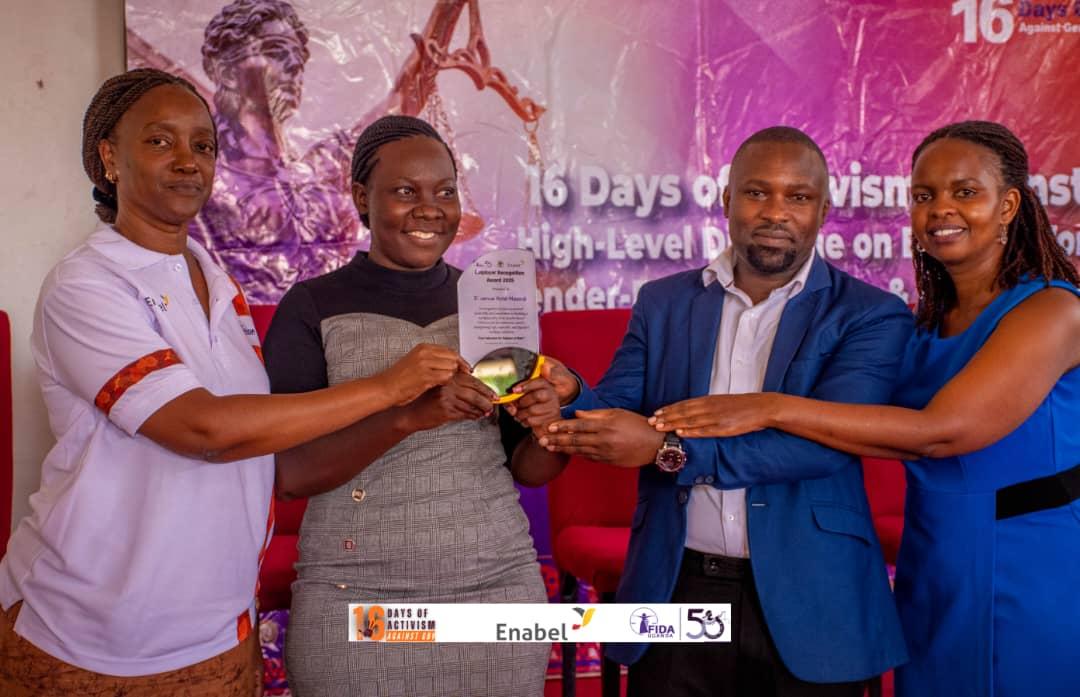
Celebrating champions of safer and more inclusive workplaces in Uganda
John CANDIGA | 12/12/2025
Organisations and individuals at the forefront of promoting safer, fairer, and more inclusive workplaces were honoured at the Employer Awards ceremony held at Nyaika Hotel in Fort Portal.The event, organised by the Uganda Association of Women Lawyers (FIDA-Uganda) in partnership with Enabel, highlighted progress made under the Workplace Safety Initiative, a programme aimed at eliminating gender-based discrimination and violence in the world of work.In her remarks, FIDA-Uganda Chief Executive Officer, Adriko Lillian, applauded employers for embracing change and prioritising workers’ rights. She noted that through the initiative, FIDA-Uganda has trained over 299 employers and 2,104 employees, equipping them with tools to promote dignity and equality at work.“I am pleased to note that 35 entities completed comprehensive self-assessments, enabling them to strengthen internal systems for addressing Gender-Based Violence (GBV) and promoting gender equality,” Lilian said. As a result of these trainings, institutions have adopted several transformative practices. These include the introduction of sexual harassment policies, confidential reporting mechanisms, appointment of gender focal persons, and the integration of gender-sensitive procedures in recruitment and disciplinary processes.FIDA-Uganda has also provided legal aid to 1,822 workers, empowering them to speak up and defend their rights. Broader community engagements led by cultural and religious leaders have reached more than 270 people, sparking dialogue and shifting harmful social norms that perpetuate workplace violence. Speaking on behalf of Enabel in Uganda, Bonny Ssekiwanda, the Country Grants Coordinator, emphasised the initiative’s goal of fostering dignified workplaces, particularly for women and young people.“We want employers to move from policy statements to real action, including reviewing contracts, integrating clauses on sexual harassment, and establishing safe reporting channels that promote decent work,” he said. “It is encouraging to see some employers already implementing these changes.” Echoing this progress, Faith Chagara, Monitoring and Evaluation Officer at FIDA-Uganda, noted that 13 businesses now have clear reporting channels for gender-based violence, while 18 have developed ethical codes of conduct, signalling a shift from awareness to meaningful action. The ceremony recognised outstanding institutions and individuals demonstrating leadership in championing safe, equitable, and dignified workplaces. Top awardees included: Asobola Community Development (ASCODE) Nyaika Hotel D’Venue Hotel – Masindi Bigodi Training and Common Facility Centre (BTCFC) Additional organisations and individuals acknowledged for their contributions were: Kolping Hotel Masindi, Sulaiman Barongo, Bwijanga Coffee Cooperative Association, Mountains of the Moon Hotel, Vizitaz Home Hotel, Pamela Restaurant, Birunji Sewante, Kabonero Agetereine Catering Services, Bigodi Community Walking Safaris, Kato Francis, Duchess Hotel, Kyakakwanzi Catering Services, and Trek Rwenzori Tours.Through the partnership with FIDA-Uganda under the Decent Work and Social Protection Project, Enabel is working towards creating safer, fairer, and more dignified work environments, particularly across the agriculture, tourism, and hospitality sectors in the Albertine and Rwenzori regions of Uganda.Through the workplace safety initiative and collaboration with the Ministry of Gender, Labour and Social Development, and the Technical Working Group, labour inspections have been boosted, labour officers have been provided with tools and inspection permits, and workplaces have been encouraged to display sexual harassment notices, referral pathways, and uphold proper contract and compensation practices.
-
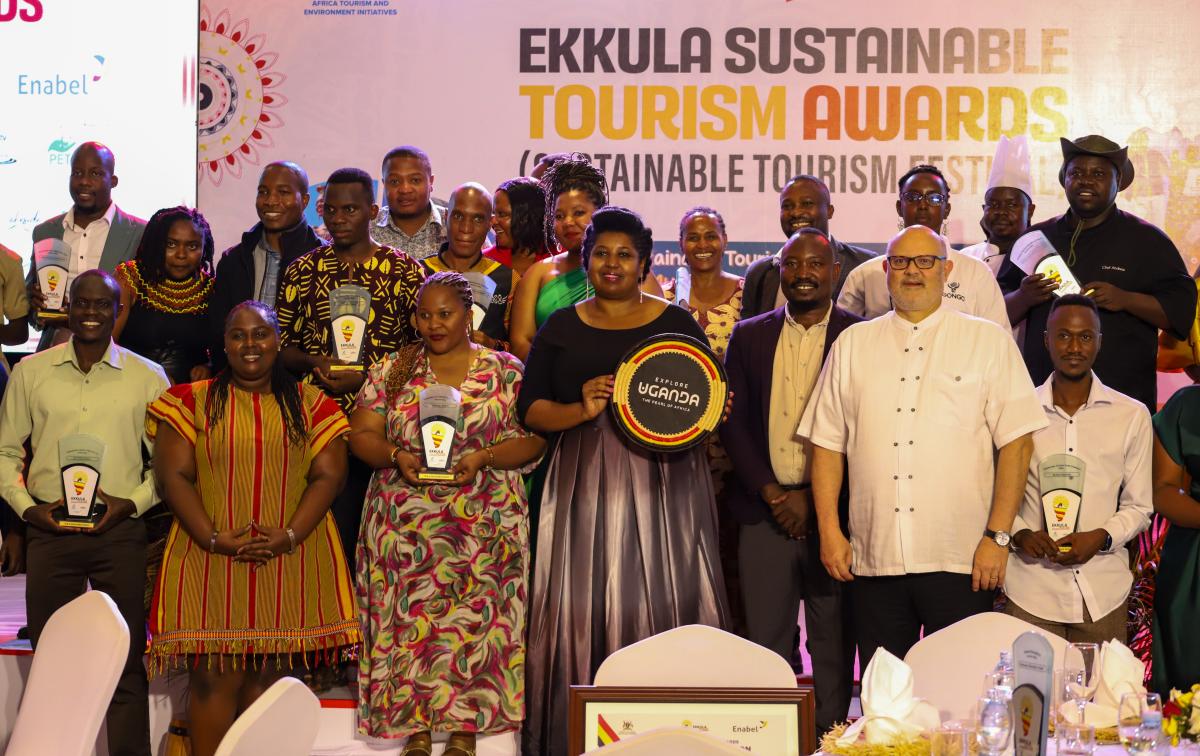
Uganda honours tourism sustainability champions at the Ekkula Festival and Awards
John CANDIGA | 12/12/2025
Uganda’s commitment to responsible tourism took centre stage at the Ekkula Sustainable Tourism Awards, an event dedicated to recognising individuals, organisations, and initiatives advancing sustainability, innovation, and community empowerment within the tourism sector.The ceremony offered a valuable platform for travellers, operators, and industry stakeholders to celebrate Uganda’s rich cultural heritage and its growing promise in sustainable tourism. Held ahead of a three-day festival, the awards brought together government leaders, private sector representatives, conservationists, creatives, youth advocates, and development partners to celebrate responsible and community-driven tourism.Bismac Moses Amumpaire, Executive Director of the Africa Tourism and Environment Initiatives (ATEI) and the visionary behind the festival, emphasised that the future of Uganda’s tourism and hospitality industry relies on sustainability, conservation, and cultural preservation. “Ekkula has evolved into a platform steering the industry towards tourism driven by purpose, responsibility, and community value,” he noted.Representing Enabel in Uganda, Joseph Byabazaire, Decent Work Expert under the Decent Work and Social Protection Project, highlighted the importance of continued collaboration across the sector. He reaffirmed Enabel’s commitment to capacity building, innovation, and strengthening community-based tourism enterprises.Nominees across the 25 award categories underwent a rigorous evaluation process, consisting of a 70% technical jury assessment and 30% public and stakeholder voting. This balanced approach ensured fairness, credibility, and broad industry engagement.Enabel in Uganda presented two special awards: Inclusive Tourism Champion Award, celebrating exceptional efforts to create accessible tourism experiences for all travellers and workers, including persons with disabilities and underserved communities.Sustainable Tourism Journalist of the Year Award, honouring journalists whose compelling storytelling promotes responsible, environmentally conscious, and community-centred tourism.Enabel was also recognised as a transformational partner in advancing sustainable tourism development. Other notable award recipients included: Nature-Based Solutions and Rwenzori Coffee House Experience – Nature-Based Tourism Experience Award Chefs Union Uganda/East African Culinary Fusion – Culinary Tourism Excellence Award Tusker Lite Rwenzori Marathon – Sustainable Tourism Event of the Year Brussels Airlines – Best Sustainable Airline, Economy Class Tabebuia Spa and Safari Resort – Sustainable Eco Lodge of the Year Emburara Farm Lodge – Agro-Tourism Eco Lodge of the Year The festival also unveiled several key national attractions, including the Official Seven Wonders of Kampala, an initiative celebrating iconic landmarks that embody the city’s cultural, historical, and spiritual identity. In addition, Uganda’s first tourism anthem, “Uganda Ekkula,” was launched as an artistic tribute to the nation’s natural beauty and cultural vibrancy.Hosted at the Sheraton Hotel in Kampala, the Ekkula Sustainable Tourism Festival and Awards honoured excellence across hospitality, conservation, culture, adventure, tour operations, aviation, youth innovation, and community-based tourism, bringing together the champions shaping a more inclusive, responsible, and sustainable future for Uganda’s tourism industry.
-
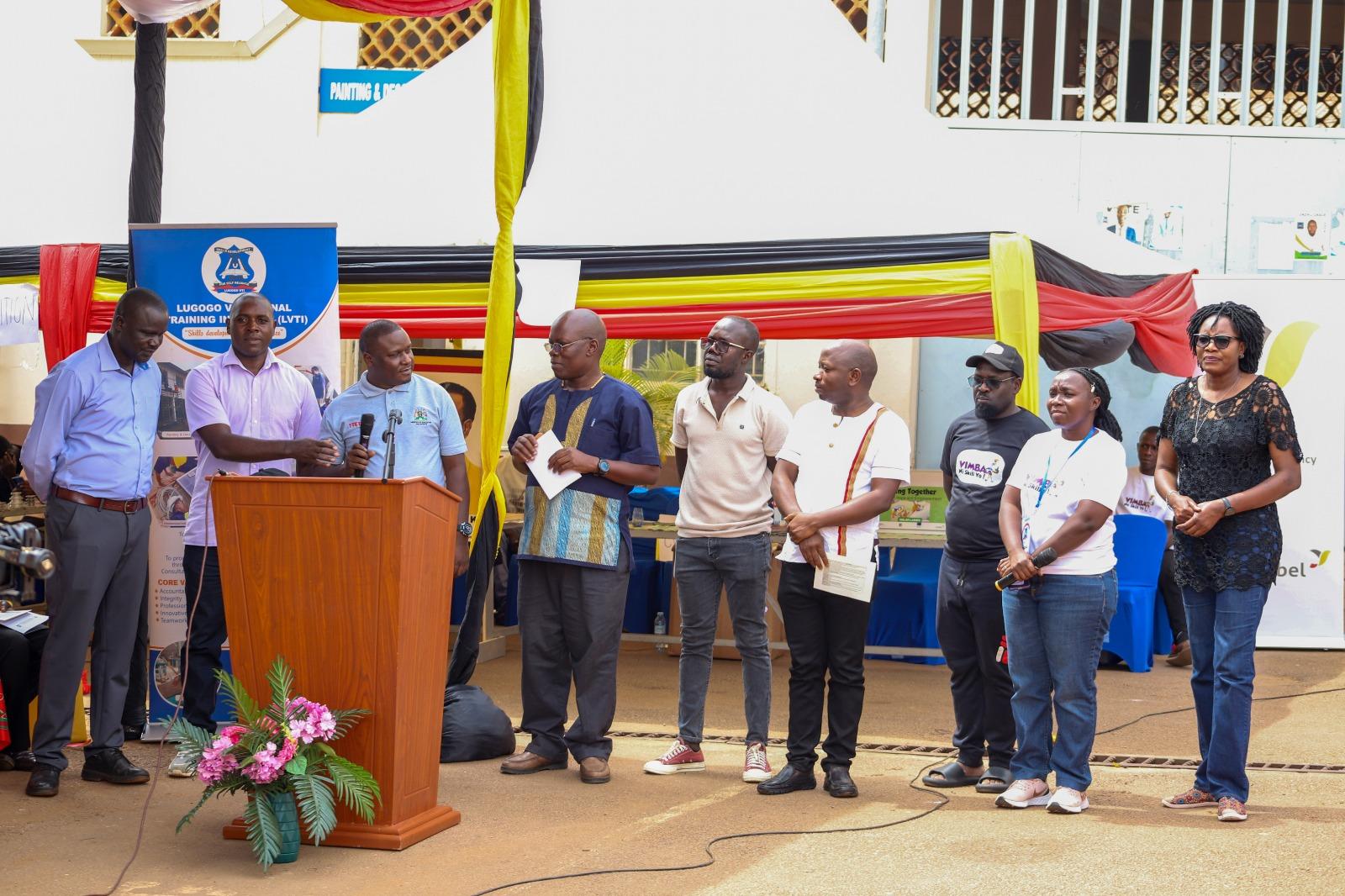
Enabel and Lugogo Vocational Training Institute host skills competition to promote TVET in Uganda
Jovia KAVULU | 11/12/2025
Enabel, in partnership with Lugogo Vocational Training Institute (VTI), hosted a Vocational Skills Competition in Kampala under the theme “Choose vocational education: Get skilled and be unstoppable.” The event formed part of a broader national effort to expand access to skills development, strengthen the visibility of technical training, and challenge perceptions that have historically undermined participation, particularly among young women and marginalised groups. The competition was designed to rebuild public confidence in technical and vocational education by showcasing the professional opportunities available within the sector. It also aimed to mobilise parents and communities to encourage young people in pursuing vocational pathways that lead to stable employment, sustainable livelihoods, and social mobility. Despite a strong national demand for skilled labour, vocational education is still widely undervalued and often viewed as a last resort rather than a viable and respected career option. Speaking at the event, Senior TVET Officer at the Ministry of Education and Sports, Innocent Kemigisha, called for an end to the belief that vocational training is only for academic underperformers. “We must break away from the misconception that TVET is a path for failures,” she stated. Citing global examples from Japan, Belgium, the United States, and South Korea, Innocent Kemigisha said that countries that invest in vocational training consistently achieve sustained industrial and economic growth. “Technical and vocational education equips learners with practical, marketable skills that drive meaningful employment and national development,” added Kemigisha. Emmanuel Kisangala, Project Manager for Enabel’s WeWork Project in the Kampala metropolitan area, emphasised the strategic role of vocational careers in innovation and job creation. “Uganda cannot afford to let stereotypes and gender biases hold young people back from opportunities in high-demand fields,” he said. Kisangala stressed that skills competitions play a vital role in restoring public trust in TVET and in encouraging youth to pursue emerging careers. “We want young people to see the potential in trades linked to renewable energy, green technologies, and other fast-growing sectors,” he noted. He further appealed to parents and guardians to encourage their children to acquire critical practical skills that Uganda urgently needs, including plumbing, electrical installation, metal fabrication, carpentry, construction, and renewable-energy systems. The Chief Head Trainer at Lugogo Vocational Training Institute, Wilson Muhammia, said the institute remains committed to delivering high-quality, competency-based training that responds to labour-market needs. “This event was designed to inspire youth, parents, and communities to embrace vocational education as a powerful tool against unemployment and poverty,” he said. Since June 2024, when the partnership between Enabel and Lugogo VTI started, the institute has undergone major institutional strengthening to position it as a model centre of vocational excellence. The staff had their teaching skills enhanced through targeted training in artificial intelligence, information and communications technology, and gender-responsive teaching and workplace practices. “The institute has also acquired skills for conducting trainee tracer studies, improving competence-based training delivery, and implementing a new joint strategic plan to drive long-term performance and sustainability,” said Wilson. The Skills Competition offered trainees a dynamic platform to demonstrate their abilities in real time, emphasising the transformative potential of vocational training in developing Uganda’s skilled workforce. Outstanding performers were recognised in woodwork technology, electrical installation systems and management, and the building and construction sectors. This year’s competition aligned closely with ongoing national reforms, including the rollout of the new TVET Act in March 2025, which seeks to elevate vocational training to industrial standards and position TVET at the centre of Uganda’s socio-economic transformation. As Uganda moves toward industrialisation and expands its green and innovation-driven sectors, investment in high-quality TVET will remain essential. The competition demonstrated that when young people, parents, institutions, and communities champion skills development, Uganda builds a stronger workforce, enhances productivity, and accelerates economic transformation.
-
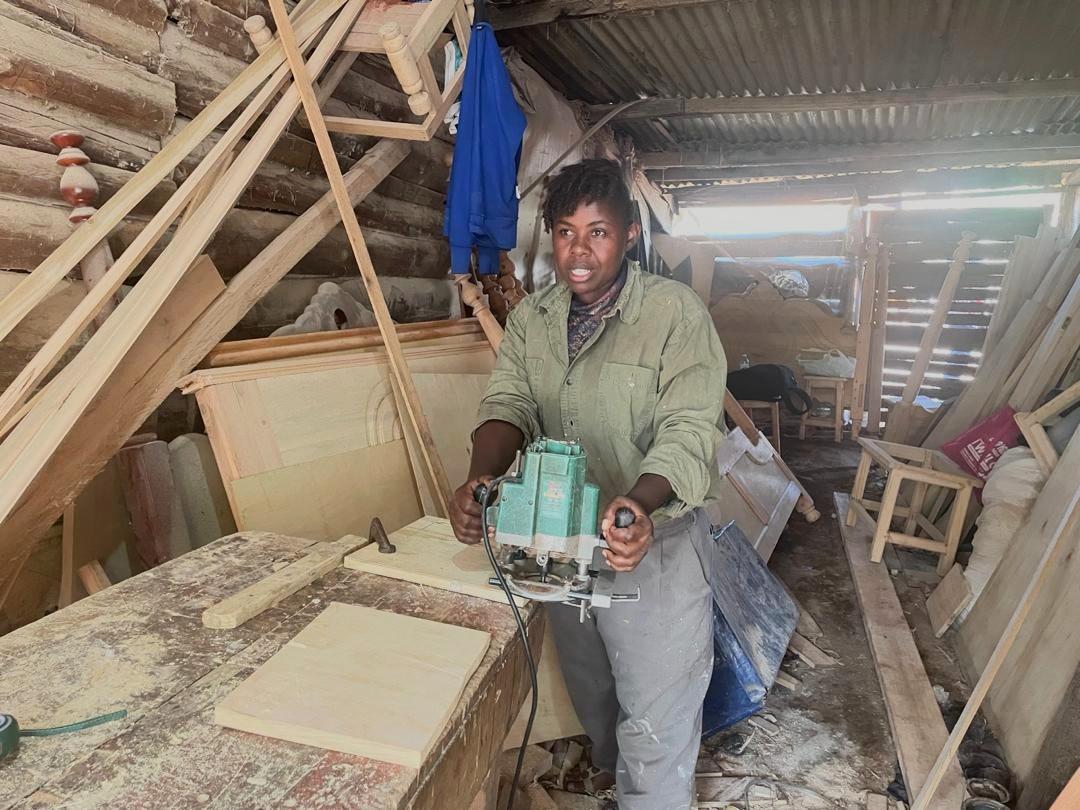
Deborah turns wood and bamboo into opportunity in Uganda
Jovia KAVULU | 11/12/2025
In a small carpentry workshop in Rwengoma A, Western division-Fort Portal, Deborah Tuhaise, a young woman works confidently, polishing furniture. Carpentry is more than just work for her — it is how she rebuilt her life and proved that women can succeed in any trade. Deborah grew up watching her father make furniture. As a child, she loved spending time in his workshop, playing with small pieces of wood, and making simple items. During the school holidays, she helped with sanding and varnishing. Her father noticed her talent and began instructing and guiding her on how to get better. Just after completing Senior Four, Deborah’s life took a painful turn. She became pregnant due to assault by someone she knew. “It was very hard,” she says. “I didn’t know how to tell my parents, but I knew I had to survive and care for my baby.” To earn an income, Deborah started making small crafts from wood and banana fibres. Her father kept encouraging her, and slowly she regained confidence. One day, she met a Tanzanian carpenter who taught her advanced carving techniques. Deborah learned quickly and began making bigger furniture items like beds, chairs, and cupboards. Her skills became noticeable and earned her a place on a team that made the ‘Empaako’ monument in Fort Portal — a symbol of Toro’s cultural pride. Working in a male-dominated trade has not been easy for Deborah. She has dealt with some clients who doubted her abilities, while others refused to pay for finished products. “People used to ask me if I could really do the work,” she says with a smile. “But after seeing the results, they began respecting me.” Her big break came when she received training through Enabel’s Support to Skilling Uganda project. Through the training, she earned a certificate in carpentry. “That certificate gave me confidence,” she says. “It helped me get more jobs and I even started training other people, which has helped increase my earnings.” Today, Deborah is not just an artisan — she is a trainer and mentor. She teaches other young women, especially single mothers, how to sand, carve, and finish furniture. “Most of them come with no experience,” she says. “But after some months, they can make and sell their own products.” Recently, Deborah started working with bamboo after learning about it at a crafts exhibition. She makes flower vases, lampshades, and mats by mixing bamboo with banana fibres. “Bamboo is easy to grow and very sustainable,” she explains. “It’s good for women who want to work from home.” Her journey has not been without setbacks. Two fires destroyed her workshop and tools, but she was able to rebuild her business on both occasions. Deborah works independently alongside her father and brother in their shared workshop. She dreams of opening a women’s craft centre where single mothers can learn, make, and sell their products. “I was once a struggling mother,” she says. “Now I want to help others stand on their own.” Enabel is currently implementing the WeWork-green and decent jobs for youth project, which was born after the success of the Support to Skilling Uganda project. Through the WeWork project, Enabel ‘s objective is to ensure that young people especially young women acquire skills and find decent jobs, or entrepreneurship opportunities in agriculture and the green and sustainable economy.
-
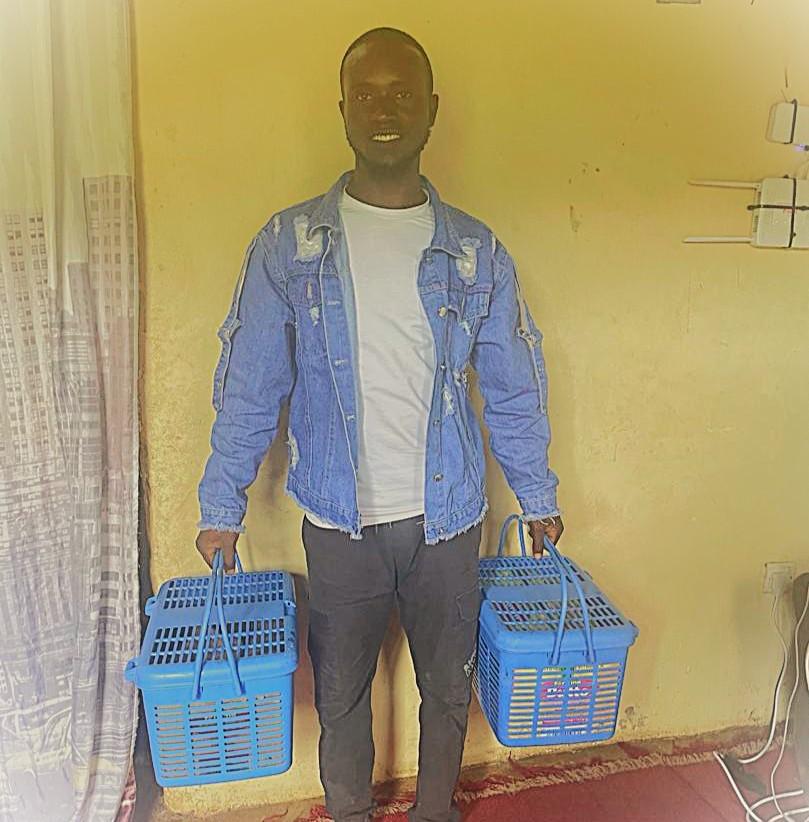
Faisal grows his samosa business in Uganda with confidence
Jovia KAVULU | 11/12/2025
Faisal Nyakana, 31, grew up between Kampala and Fort Portal. After completing Senior Four, he returned to Kampala, but life was difficult. “I was just walking around looking for a job,” he recalls. “I didn’t even mind cleaning, but I couldn’t find anything.” Eventually, he found work loading and offloading trucks, earning just UGX 5,000 (1.2 euros) per day. He did this for three years, but making ends meet remained a struggle. When his father sold land in Fort Portal and started a family samosa business in Bundibugyo, Faisal returned home to help drive the delivery vehicle. The family made 1,000 samosas a day, selling each at UGX 500 (0.12 euros), and every batch sold out. When they were forced to close their business due to COVID-19 lockdown measures, the family settled back in Fort Portal. After some months had passed, Faisal heard a radio announcement inviting youth to apply for a hospitality training opportunity. He filled out the forms and joined hundreds of applicants, all competing for only 30 slots. “I was scared when I saw how educated some people were,” he says. “I didn’t think I had a chance.” After passing the first interview, he faced a second one he believed he had failed. While waiting for results, Faisal encouraged the others: “This is not the end of life,” he told them. “If we don’t go through, let’s start our own businesses. We can do anything as long as we are committed.” Unbeknown to him, some interviewers overheard his positivity and leadership. They were impressed and selected him among the final 30 trainees. From that moment, his life changed. The youth were checked into a guest house with meals catered for. “We ate good food sponsored by Enabel, and I started living a good life,” he says. They trained at Kayla Courts Hotel — one month of theory and three months of practical lessons. He earned a certificate and gained important professional skills, especially in customer care. Afterward, he was placed for an internship at Kayla Courts, rotating through different departments: housekeeping, reception, room service, and the bar. His performance stood out. He was retained as a full-time waiter and eventually worked across several departments. “I wanted to excel so I could get tips. I even taught other trainees what I had learned,” he says. While working at Kayla Courts, Faisal got married but soon realised his salary of UGX 300,000 (73 euro) a month was not enough. He decided to return to Kampala, got temporary work in a hotel, and began saving. With help from his mother, he restarted making samosas — but this time on his own terms. The first week was tough. He hawked 100 samosas on the streets of Fort Portal and sold almost nothing. “We ate most of the samosas we made,” he laughs. But he refused to give up. One day, everything changed — he sold out all 100 samosas. The next day, he made 200, and again, they all got sold. He quickly became known for his product. “Whoever tastes my samosas has to buy them,” he says proudly. People admired his cleanliness, packaging, and the smile he served them with. Soon, he was selling 400 samosas a day, including regular orders to businesses like Infectious Disease Institute and Centenary Bank. He now runs a WhatsApp group for his customers where he shares daily updates and takes orders. Faisal says everything goes back to the skills and confidence he gained through the Enabel training. “I learnt how to treat customers and respect them because they are my bosses,” he explains. “I was taught to be confident, honest, and to set high standards — and keep them.” He pays his mother UGX 10,000 (2.4 euro) a day to wrap samosas. He now earns what he once did in a month at the hotel in just two weeks, and he is able to take good care of his 2 children. “Right now, no one can hire me,” he says with a smile. “Hospitality is a big thing. When you have class, class attracts class.” Faisal dreams of opening his own restaurant — Faisal One Restaurant — with his mother as the chef. Until he can afford rent, he is already marketing the brand. “My plan is excellent customer care because that is key,” he says. He refuses to sell food he is not proud of: “If we make a mistake in the samosas, we would rather eat them ourselves than disappoint a customer.” His advice to young people is simple: “As you support those rich footballers, do it while you are working and earning. The more you watch football while doing nothing, the poorer you become.” Today, Faisal continues to share his knowledge freely with others in Fort Portal because of what he received through Enabel. “I got information for free, so I am ready to give it out freely and inspire others,” he says. Faisal was skilled under the Support to Skilling Uganda Programme, which led to the WeWork – green and decent jobs for youth project, implemented by Enabel and funded by the European Union and Belgium.
-
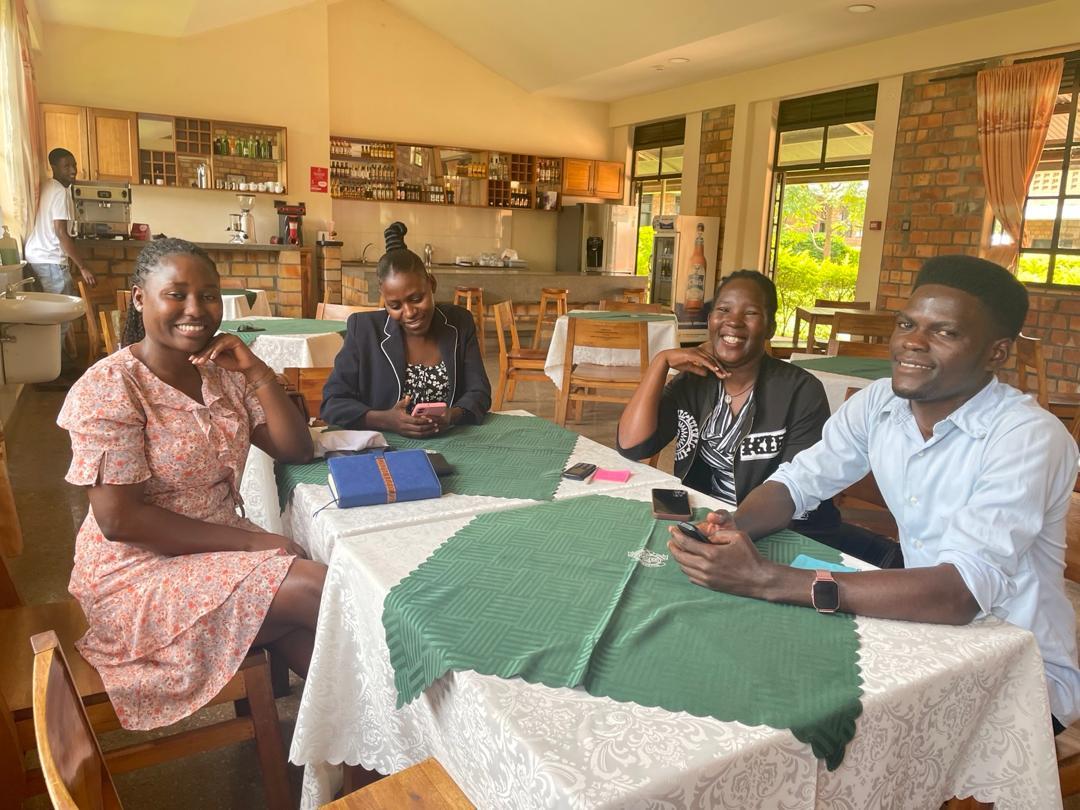
Young graduates begin their teaching career at Millennium Business School in Uganda
Jovia KAVULU | 11/12/2025
Millennium Business School (MBS) in Hoima needed new instructors, and through its partnership with Enabel, a group of young graduates were placed directly at the institution. They joined MBS under the Work Readiness Programme implemented through the WeWork – green and decent jobs for youth project, funded by the European Union and Belgium. Their first six months at the institution were fully supported, helping them transition smoothly from school to employment. For many of the graduates, this opportunity meant stepping into unfamiliar territory. Barbra Otai, for example, had never been to Hoima. She was shocked when she learned she would be relocating, but the principal encouraged her: “With work, you just have to move where the opportunities are.” Soon after arriving, Barbra and her colleague Ramathan Talemwa attended an andragogy training workshop organised by Enabel and Kyambogo University to prepare young graduates for TVET instruction. Kyambogo lecturers continued to visit MBS regularly, observing lessons, offering feedback, and helping the new instructors improve their teaching methods. Starting out was demanding. The young instructors had to develop lesson plans from scratch, guided by older colleagues who helped them understand the curriculum and syllabus requirements. The principal was fully involved, making sure they followed training standards. Even with strong support, the transition into teaching came with challenges they had not expected. One major issue was teaching mature learners. As Kefa Kirabo explained, many students are adults, sometimes the same age as their instructors, and this can affect discipline and respect. “This is not a secondary school, so you cannot punish them,” he said. “You just have to talk to them, but some still refuse to comply.” Language barriers added another challenge. Vocational training attracts learners with different educational backgrounds—some stopped at Primary Seven, others at Senior Four—and sometimes they take the same course. This means their levels of understanding vary widely, making it difficult to balance lessons. Still, the MBS administration has remained supportive, which has helped the instructors stay motivated. Barbra now encourages students to speak English in class. She believes language skills will help them secure jobs beyond Hoima. Seeing students succeed has become a major source of pride for the instructors. Kirabo recently met some of their former trainees doing internships at Le Confidential Hotel in Arua and Nile Hotel in Jinja, and the supervisors spoke highly of their performance. For him, moments like these prove that their teaching is making a difference. The young instructors were all given one-year-and-four-month contracts, structured so that their contracts end at the same time as those of the older instructors, who have two-year contracts. This model allows the school to renew all contracts at once. Even so, many of them are already thinking ahead in case their contracts are not renewed. Ramathan is trying to save and build a financial cushion. Barbra wants to open a restaurant one day so that she can balance work and family life. Caroline kabasingunzi already owns a pastry shop in Seeta, Kampala, which her cousin manages while she teaches. Ramathan hopes to open a boutique in the future and become self-employed. Education remains a priority for several of them. Kefa plans to start a bakery and upgrade his academic qualifications. He hopes to pursue a master’s degree in tourism and hospitality management at Kyambogo or Makerere University in August 2026. “More books come with more opportunities,” he said, although he is still working towards financial stability. Kevin also hopes to return to school for further studies. Each instructor at MBS has a unique story. Barbra, who teaches food and beverage service and hygiene, joined MBS in February 2025 after working as an events manager and restaurant supervisor. She had never envisioned becoming a teacher, but with support from colleagues, she settled in and grew to enjoy it. Caroline teaches housekeeping and store management. She knew the principal from her university days and joined after sending her CV and being invited for an interview. An introvert by nature, Caroline is still adjusting to teaching and hopes to eventually transition into wildlife management for a stable government job. Ramathan teaches cosmetology. Public speaking was a struggle at first, but over time he became more confident and now finds teaching enjoyable. Kevin Abuko teaches Swahili. She traveled from Soroti after being connected to MBS through Kyambogo University. She had never imagined teaching, but growing up around Arabic speakers helped her learn the language, and now she trains students preparing to work in hotels that serve guests from Kenya and the Democratic Republic of Congo. With training and workshops, her confidence has grown, and she plans to continue her studies. Kefa teaches French, events management, and nutrition in the catering department. Recommended by a former lecturer, he joined MBS in February 2025 through the Work Readiness Programme. Teaching has helped him speak confidently in front of large groups, and he now finds the profession rewarding and enjoyable. At Millennium Business School, these young instructors are building careers, growing their skills, and shaping their futures. The journey has not been without difficulties, but with guidance from older instructors and support from the administration, they have been able to adapt. Most importantly, they take pride in seeing their students excel—knowing every lesson prepares someone for new opportunities.
-
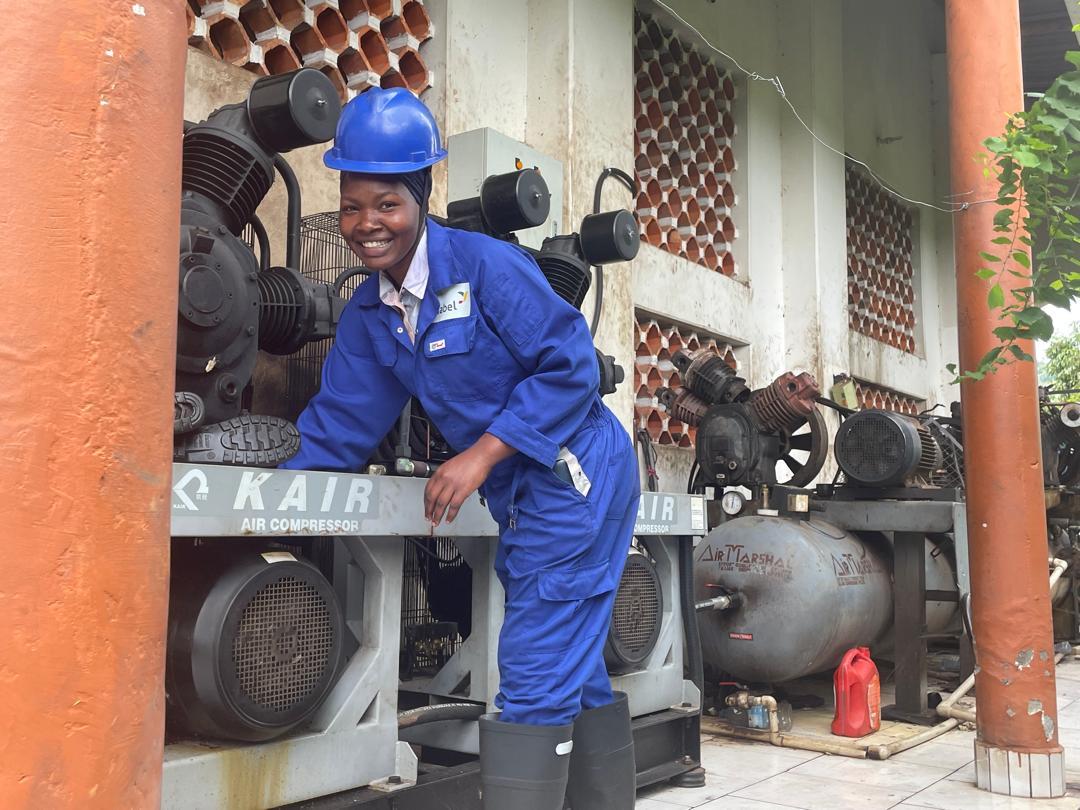
Brenda switches from an aspiring teacher to a promising electrician in Uganda
Jovia KAVULU | 11/12/2025
Brenda Angeyo works as an assistant electrician at Albertine Water in Hoima, a company that manufactures and distributes mineral water in uganda. Brenda repairs machinery, maintains equipment, and installs new appliances. She enjoys her job because it challenges her and allows her to learn something new every day. There are two electricians on the technical team, and they live close to the factory so they can easily respond when emergencies arise. Brenda joined Albertine Water on 9th September 2024, but her path to the company began long before that. She was born in the Acholi region but grew up in Fort Portal. At 25, she admits she never imagined herself in the field of electricity. She originally wanted to become a teacher and only enrolled in the electrical course when an opportunity opened for her, a month before the first term ended. Over time, however, she discovered real interest in the work. “The course is good,” she said. “There is always something new to learn, but it is also very demanding because you can get an electric shock.” She recalls an incident while connecting a motor. “I had connected the cables very well, but when I was closing the fan cover, the wires came into contact and there was a spark.” Incidents like this taught her the importance of caution. She wears gloves and overalls provided by the company whenever she is working. Brenda studied at St. Joseph’s Vocational Institute, graduating in 2023 with a National Certificate in Electrical Engineering. Most of her classes were theory-based, so she had limited practical exposure at school. Internships helped bridge the gap: she had weekly practical lessons and placements lasting from one week to two months. She did two internships in Kasese and one in Fort Portal. Before joining St. Joseph’s, Brenda had almost given up on the idea of continuing her education because her father did not have the means to pay for it. She completed O-Level in 2021 and thought that was the end of her schooling. Then Enabel contacted her and offered sponsorship at St. Joseph’s, an opportunity she learned about through her father. After completing her course, she briefly worked in Kasese as a craft salesperson, selling handmade items to tourists. Five months later, she was invited by Enabel to attend a two-day soft skills workshop in Masindi with other young people, including some who had studied at St. Joseph’s. “We were taught how to conduct ourselves at work, how to be flexible and hardworking, how to communicate clearly, build confidence, relate well with colleagues, and work as a team.” She believes this training prepared her for workplace expectations and helped her settle in quickly. The soft skills training ended in July 2023, after which the youth were placed in different companies. Brenda was assigned to Albertine Water in September 2023. She had no problem moving from Fort Portal to Hoima and was placed alongside another trainee in mechanics. Her first contract was for six months, including three months on probation. When the contract ended, the company chose to retain her. A colleague gave management a positive report describing Brenda as hardworking, flexible, and eager to learn. The company needed an assistant electrician, and because Brenda was the only electrician among the youth who had gone through the soft skills programme, she was selected when Albertine Water contacted Enabel. Today, Brenda is proud of how far she has come. She recently encouraged her brothers and sister to apply for the Work Readiness Programme through the Private Sector Foundation Uganda, a partner of Enabel in implementing the programme under the WeWork – green and decent jobs for youth project, funded by the European Union and Belgium. “I am grateful that Enabel gave me this chance and changed my life,” she said. “I am now able to help my dad by sending him some money to get by.”
-
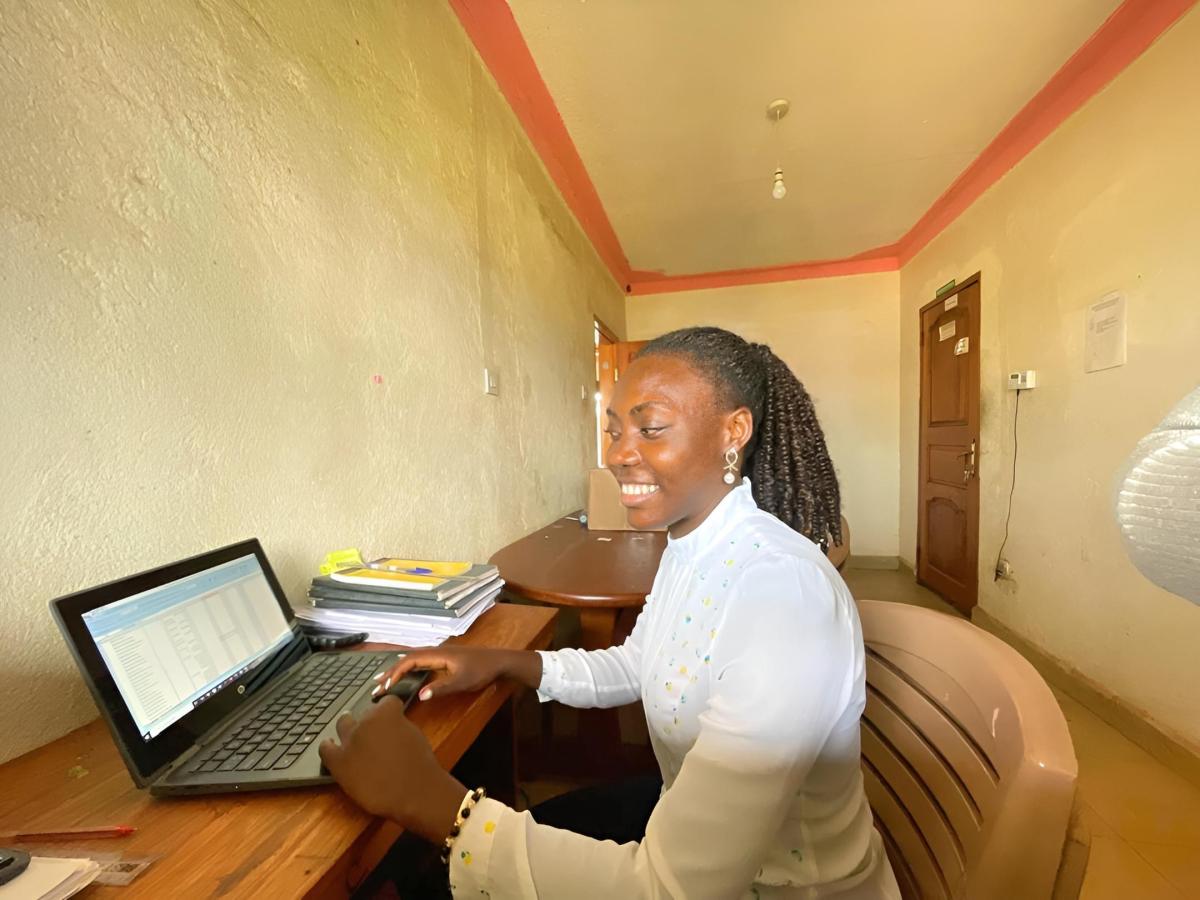
Academic excellence and discipline open Sharon's doors into the workplace in Uganda
Jovia KAVULU | 11/12/2025
22-year-old Sharon Kahunde works as a records and information assistant at Bunyangabu Beekeepers Cooperative Society (BBC), where she has been employed since September 2024. Sharon comes from Fort Portal and holds a Certificate in Records and Information Management from Rosa Mystica Institute, where she studied for two years. She completed her exams in May 2024 and, like many fresh graduates, spent the next few months at home wondering what to do next. Her turning point came when she received a phone call from Enabel. The team was reaching out to fresh graduates through their former institutions, offering them a chance to join the Work Readiness Programme under the WeWork–green and decent jobs for youth project. Sharon felt fortunate. “I felt lucky that I was just called and didn’t have to look for a job myself,” she says. She filled in the application form they sent her and was later invited for a three-day training at Kyema Technical College in the Albertine region. The training focused on workplace behaviour, communication, and practical computer skills, which she remembers vividly because they were hands-on, and she was tested on what she learned. Two weeks after the training, Sharon and the other trainees were placed in different organisations. Four graduates were posted to BBC, but only two were retained—and Sharon was one of them. She believes her commitment and discipline helped her stand out. “I used to come to work every day and work diligently,” she recalls. Although excited, Sharon was initially worried about moving from Fort Portal to Bunyangabu because she had never lived away from home and did not know where she would stay. When she met the BBC manager and shared her concerns, he reassured her and gave her a tour of the premises. To her surprise, BBC had accommodation available, and she was offered a two-bedroom house within the premises at no cost. She only buys her own food and does not incur any rent or transport expenses, something she describes as a blessing. At BBC, Sharon works from Monday to Saturday managing the stores for honey and packaging materials. She records all honey received from production, issues stock to the packing room, and keeps track of everything brought to the premises, including wax and propolis. At the end of each month, she prepares a report showing what was received and what remains. She still records everything in books but also uses a laptop that BBC gave her when she was retained. She says this is part of the digitalisation process supported by Enabel under the WeWork project. She also handles ordering and verifying packaging materials and records them before issuing them out to staff. Sharon believes she was recommended for the programme because she was the best student in her Records and Information class. Only four students studied that course, and she emerged top, even receiving a prize for academic excellence. She also believes her good discipline made her teachers confident enough to put her forward. Her dedication continues to open doors. When TONADO, one of Enabel’s implementing partners that trains youth and women in beekeeping, set up an office at BBC and needed a bookkeeper, they hired Sharon and offered her a two-year contract starting December 2024. Outside work, Sharon is also a growing entrepreneur. She runs a boutique in Fort Portal city, selling clothes and shoes, and employs her cousin to manage it, along with her mobile money business—which she started while still in school and continues to operate. She also keeps pigs at her parents’ home, where she has three pigs and six piglets. The income from these businesses helps her cover costs and support her family. She saves money every month, preparing for life after her contract and looking forward to becoming self-employed one day. Sharon says her drive comes from her upbringing. Raised by a single mother in a humble home, she learned early the importance of working hard. She supports her siblings and pays school fees for her sister in Senior Two. “I don’t want to die poor,” she says. “I grew up in poverty and experienced it, and I don’t want that life.”
-
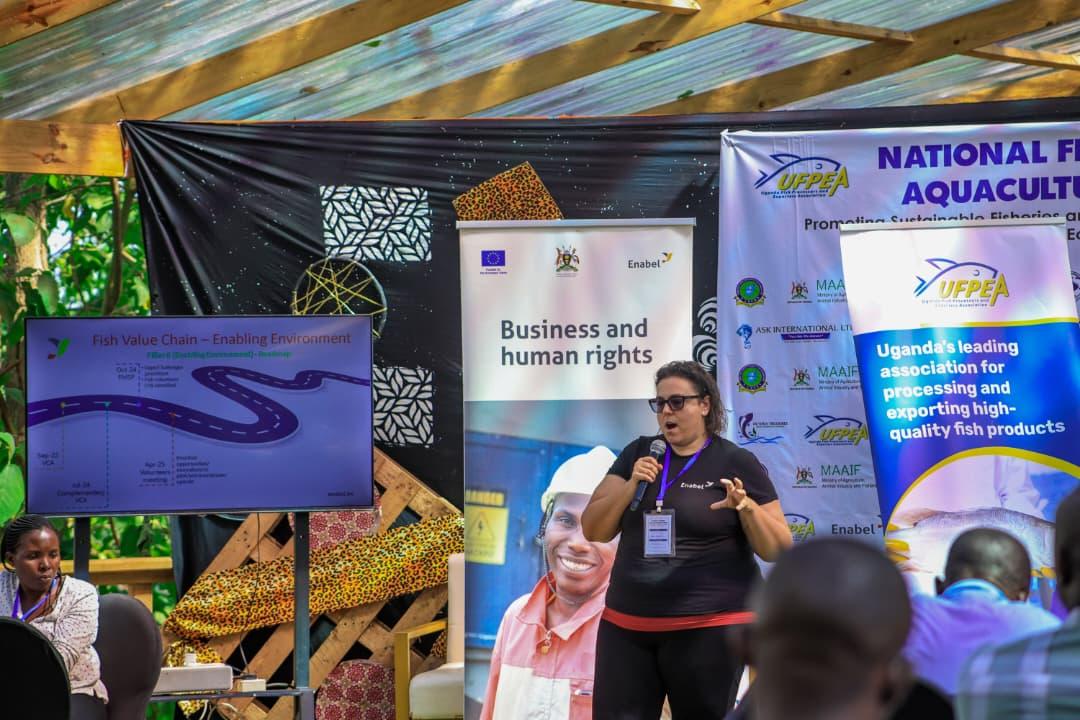
Enabel awarded for championing sustainable and inclusive fisheries development in Uganda
Jovia KAVULU | 10/12/2025
Enabel in Uganda was awarded with the Development Partner Award at the National Fisheries and Aquaculture Forum held in Jinja city on 6th December 2025. The recognition celebrates Enabel’s sustained commitment to promoting responsible fisheries practices and strengthening the sector through its projects: WeWork—green and decent jobs for youth—and Advancing Respect for Human Rights by Businesses in Uganda. The forum, organised by the Uganda Fish Processors and Exporters Association (UFPEA) in collaboration with Enabel, brought together government representatives, development partners, private sector actors, academia and community stakeholders for a day of learning and strategy-building around Uganda’s blue economy. Delivering the keynote address, Mr. Richard Ogutu-Ohwayo, Coordinator at the African Lakes Network and an independent researcher, emphasised the urgent need to address corruption within the fish value chain. He stressed the importance of stronger policies, better resource management and enhanced human resource capacity to ensure a transparent, well-governed sector. Dr. Konstantine Odongokara, a research and policy expert, highlighted the need to domesticate international policy frameworks into Uganda’s aquaculture systems and build the capacity of stakeholders to access regional and global opportunities in the industry. Speaking on behalf of the Ministry of Agriculture, Animal Industry and Fisheries, Dr. Godfrey Dheyongera stressed the importance of collective action in achieving Uganda’s production targets of one million metric tonnes from aquaculture and 700,000 metric tonnes from capture fisheries. He encouraged broader adoption of aquaculture to ease pressure on wild stocks and support diversification of fish species. UFPEA Chairman Rakesh Shetty thanked Enabel for sponsoring the event, noting that while fisheries remain central to food security, employment and exports, the sector continues to face challenges ranging from pollution to illegal fishing and governance gaps. “Our sector is strongest when we work together,” he said. Representing Enabel, Umut Pamuk, the WeWork Project Manager in the Busoga region reaffirmed the organisation’s commitment to promoting green and decent jobs across the fish value chain. He noted the sector’s potential to create meaningful employment while protecting the environment. Hosting the forum in Jinja—at the source of the Nile—further emphasised the region’s importance for fisheries and sustainable tourism.During the panel session, Enabel’s Business and Human Rights Expert, Moreen Kiiza emphasised that the fisheries value chain is deeply linked to rights related to food, livelihoods and decent work. She noted that international markets increasingly expect exporters to demonstrate human rights due diligence. “Beyond the fish, we must remember the human beings driving this value chain,” she said. Enabel’s Agribusiness Expert, Valentina Moltisanti, highlighted the organisation’s continued collaboration with UFPEA on policy engagement, value chain development and capacity strengthening. She noted that fisheries and aquaculture remain priority sectors for creating decent work opportunities for women, youth and persons with disabilities under the WeWork project. The discussions and commitments made at the forum reflected a shared determination to safeguard Uganda’s fisheries resources while expanding opportunities for the communities that depend on them. With continued collaboration among government, private sector actors, development partners and local stakeholders, the sector is well positioned to transition toward a more sustainable, inclusive and economically vibrant future.
